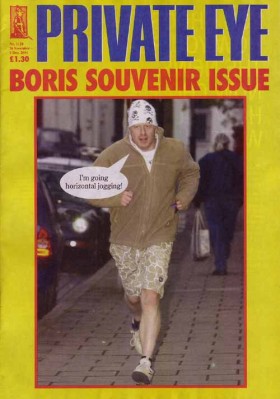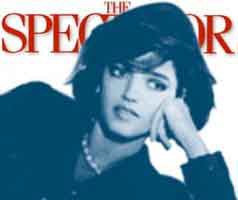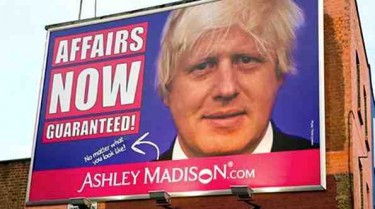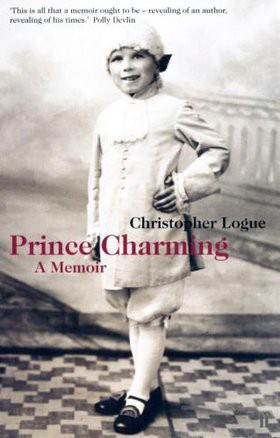Maybe You Have Doody On Your Hands, Racist
“[P]eople with compromised immune systems (due to a recent illness), and even people who describe themselves as afraid of germs or susceptible to disease, are more likely to avoid and feel prejudiced toward otherwise healthy people who merely look different than them, like foreigners or immigrants. It appears this prejudice can be reduced or erased by public health measures like vaccination or the simple act of washing your hands, according to a recent study in Psychological Science.”
What Perfumes Smell Like (Besides Money Burning)

What does money smell like? The Times notes the rapid rise of “sweet” in perfumes, which makes sense, given that pop culture is garbage and syrup, though Prada Candy, God bless. There are also a few holdouts, like Hermes perfumer Jean-Claude Ellena: “Instead, his new Hermès Santal Massoïa, introduced in November, is made of the ‘milky’ woods sandalwood and massoia. It smells sort of like a tree that’s been through a brutal storm.” LOL! (Also, weirdly true. Though also sort of like a ripe melon got trapped in a sauna after being beaten with a cedar bat.) Elsewhere a (terrible-sounding) perfume is described by saying it “conjures an image of Janis Joplin holding a lollipop.” I wish they’d said “conducting a jam band with a lollipop.” Anyway. People like to smell things, sometimes.
Critic Criticized
“Mr. Adams obviously went into the concert knowing little about Seger and with an agenda with digs at the staging and attire of Seger. Seger recorded his cover of ‘Nutbush City Limits’ in ’75 on the ‘Beautiful Loser’ LP just 2 years after Tina recorded it. He didn’t “throw in” the song into the concert. He put it on his old ‘Live Bullet’ concert LP and has featured that song for 30 years in concert. He’s age 66. Why not get off his back and just thank him for touring in Philly?”
— Do not mess with Bob Seger fans because they will take you to school. [Via]
The Sound of 2011
“If you look for a trace of our economic woes in the music, you’ll be frustrated. People weren’t supposed to sell records, apparently, but if your name was Adele, your second album, “21,” didn’t leave the upper reaches of the Billboard Top 200 chart in the forty weeks since its American release (usually hanging about in the top ten). What about the music-biz truism that people only come out in big numbers for rappers from the gangsta disapora? Well, apparently you can be Drake and wear sweaters and sing and be as hardcore as Pikachu and go to No. 1. (You risk being called “the human croissant” on the Internet by somebody imitating the voice of Ghostface Killah, but you can handle that.) You can also be a hip-hop diaspora unto yourself, made up of largely foul-mouthed young men, and give away almost all of your music on Tumblr — and watch your leader get signed to the same label as Adele.”
— Awl pal Sasha Frere-Jones looks back at the year in music. Apparently he has a fondness for Katy B.
Boris, Britain's Blond Bombshell
by Emma Garman

A series dedicated to explaining Britain’s manufactured celebrities to an American audience.
Of the various cultural metrics used by future historians to define our current, turbulent era — the remarkable epidemic of citizen protests, imploding free market capitalism, the dominance of the single-camera sitcom, America’s strange obsession with why some lady with bangs might not get married like she totes always thought she would — among the most significant will surely be the cult of personality’s global decline. Castro has finally hung up his beret, Gaddafi’s been unceremoniously bumped off, and Russian voters have signaled their disenchantment with Vladimir Putin’s Stalinist ubiquity. As for Obama, has any leader ever slid quite so precipitously from the warm rays of hero worship to the chilly shadows of collective disillusionment? Even Simon Cowell — and I type these words with due trepidation, fearing that He might opt to demonstrate his continued sovereignty by unleashing a plague of Alicia Keys renditions or worse, if indeed anything could be — has somehow incurred dissent in his flock, who have disobediently and unprecedentedly failed to make his TV shows top of the ratings.
And yet, as the scholarly subject of today’s column might put it, exceptio probat regulam — an exception proves the rule. Boris Johnson — columnist, author, TV presenter, dedicated adulterer, Mayor of London — may be the world’s greatest cult of personality outside of North Korea, and he looks set to continue on his relentless path, quite possibly all the way to 10 Downing Street. For Boris (né Alexander Boris de Pfeffel Johnson, Al to his family, Bozzer or Bo-Jo to the tabloid newspapers whose pages his antics have lavishly filled), has not ascended to his status as Britain’s most beloved blond bombshell thanks to brains and ambition, although he’s blessed with a hefty abundance of both (like Marilyn Monroe’s, his ditzy act is precisely that), nor political acumen, with which, it is generally agreed, he’s less well endowed. As everyone who’s occupied his glowing orbit will attest, Boris has achieved the hallowed celebrity niche of single-name recognition via a lethal combination of gold-plated charisma and an unshakable belief in his native exemption from the conventions — social, professional, legal, personal — to which everyone else must conform.

Boris “has charm the way people have perfect pitch,” believes veteran interviewer Lynn Barber, “something he can rely upon, deploy whenever he needs.” And needs it he very often does, particularly when he’s blithely insulted an entire populace — like the time he characterized Portsmouth as “too full of drugs, obesity, underachievement and Labour MPs” to the vocal outrage of the English city’s councillors, or compared party politics to “Papua New Guinea-style orgies of cannibalism and chief-killing,” necessitating a vow to “add Papua New Guinea to my global itinerary of apology.” The sheer number of Boris’ gaffes would fell the political career of any mere mortal, yet with a few jokes and a bit of confected self-recrimination he’s able slide out of every awkward spot, an unusual gift that brings to mind sociologist Eileen Barker’s famous description of cult leaders: “Almost by definition, charismatic leaders are unpredictable, for they are bound by neither tradition nor rules. They are not answerable to other human beings.”
For the wielder of all that charismatic authority, the absence of restrictions and inhibitions is no doubt enormous fun, but one can only imagine how trying it is for their more staid rivals and companions. For instance, current Prime Minister David Cameron will have greeted with his most peevish expression the news that GQ has anointed Boris as Britain’s most influential man for 2012, with the PM pushed ignominiously into second place. And Cameron’s Borisian travails pale next to those of Mrs. Boris, a high-flying Anglo-Indian lawyer named Marina whose husband’s freewheeling love life — about which, naturally, much more later — must be as tough for her to bear as it is endlessly entertaining for the rest of the nation. (Boris’s first wife, Allegra Mostyn-Owen, whom he married at 23 and was divorced from five years later, must look upon the Boris circus with the feeling of having dodged a bullet — especially since her recent marriage to a man from Pakistan who’s more than two decades her junior.)
Like most great self-inventors, Boris began the process young. Growing up in a well-to-do but not hugely wealthy family with Turkish, Jewish and French forebears as well as, a little further back, German and English royalty, at thirteen he won a scholarship to Eton College, the ludicrously posh boys’ school founded in 1440 by Henry VI. David Cameron, who through a royal ancestor — George II, who lived in the 1700s — is Boris’s eighth cousin, was a contemporary but Boris formed his closest friendships with two even richer and more aristocratic pupils: the Honorable Charles Spencer, 9th Earl of Althorp and Lady Diana’s brother, and Darius Guppy, the future jailed fraudster and “high society psycho” who’s descended from a Grand Ayatollah on his Iranian mother’s side and English nobility on his father’s side.
Deciding to go by his memorable middle name — chosen as tribute to a Russian émigré who was kind to his mother when she was pregnant with Alexander Boris, her first child — at Eton Boris further developed the persona that, according to his most recent biographer Sonia Purnell, he had begun to project at prep school: ultra-English, artfully disheveled, bumbling and frightfully upper class, with a lexicon peppered with words and expressions rarely heard outside of PG Wodehouse novels. A school magazine article by sixteen-year-old Boris, quoted by Purnell, in which he’s defending elite private education, offers an early taste of the trademark Bo-Jo shtick: “The Civilised World can ignore, must ignore entirely these idiots who tell us that by their very existence the public schools demolish all hopes most cherished for the Comprehensive System. Clearly, this is twaddle, utter bunkum, balderdash, tommyrot, piffle and fiddlesticks of the most insidious kind.” A quarter-century later, when accused of having an extra-marital affair, Boris insisted, or rather lied through his teeth: “It is complete balderdash. It is an inverted pyramid of piffle.”

One of his Oxford University tutors, Jonathan Barnes — brother of the novelist Julian — is quoted by Boris’ other biographer, Andrew Gimson, thusly: “It was, I think, generally supposed that the bufferdom was sedulously cultivated. I can’t judge — but, cultivated or natural or a mixture of the two, he wore it very well.” At Oxford Boris read Classics (he’d excuse himself from a conversation with “I think I might pop up to my room and have a peek at Plato”) and maintained his triumvirate with Charlie and Darius. They all joined the invitation-only, men-only Bullingdon dining club which, as the New York Times reported in 1913, “represents the acme of exclusiveness at Oxford; it is the club of the sons of nobility, the sons of great wealth; its membership represents the ‘young bloods’ of the university.” When Boris and his chums arrived in the mid-eighties, that was still all true, but by then the principal modus operandi of “the Buller” was smashing up restaurants before proffering a large check for the damage. An especially hell-raising evening, Boris once recalled, “ended up with a number of us crawling on all fours through the hedges of the botanical gardens, and trying to escape police dogs.” With characteristic self-deprecation, he added: “And once we were in the cells we became pathetic namby-pambies.” A 1987 photograph depicting Boris and David Cameron with other Bullingdon members in their tail-coated club uniforms has become Exhibit A in the argument that British toffs hold sway over their society now as much as ever.
Nowadays, Boris has drifted apart from his erstwhile besties, who no longer speak to each other after Darius broke Charlie’s cheekbone for trying to seduce his wife while he was in prison for masterminding an insurance scam involving a staged jewel heist. (The English gentry: a lot more like an Aaron Spelling soap opera than you might think!) Violence, or, more accurately, conspiracy to violence, also came between Boris and Darius: on a 1990 tape recording that came to light years after the fact, Darius is heard pressuring his old friend, then a Brussels-based journalist for the Telegraph, to obtain the address and phone number of a News of the World reporter who had been digging around in his background, so that he could dispatch a goon to put the frighteners on the man. “He will not have a broken limb or broken arm, he will not be put into intensive care or anything like that,” Darius reassures Boris, who’s keen to know just how aggressively injuries will be inflicted. “He will probably get a couple of black eyes and a… a cracked rib or something.” Although he agreed to get him the information, Boris later claimed that he’d had no intention on following through on his promise. Nevertheless, “Guppygate” would be one of the many scandals that followed Boris around, albeit without slowing his rise to power in any perceptible way.
Indeed, from the get-go Boris’ career was characterized by monumental blundering followed by swift redemption: in his second post-college job as a trainee reporter at the Times (he lasted a week at his first as a management consultant, confessing that he “could not look at an overhead projection of a growth profit matrix, and stay conscious”) he was writing an article and, for expediency’s sake, made up a quote. His transgression uncovered, he was fired in disgrace, but then immediately hired by the Telegraph, an old-fashioned, old boys’ club environment that was much more his style. He rose to assistant editor and still writes a weekly column which, sadly, is stringently vetted for “unexploded political devices” as a Telegraph executive delicately puts it, whereas in his pre-Mayor days, there was no predicting the grenades Boris might casually lob — coming out in support of Hillary Clinton in 2007, he evoked her as “a mixture between Cherie Blair and Lady Macbeth, stamping her heel, bawling out subordinates and frisbeeing ashtrays at her erring husband,” the year before, denouncing Saddam Hussein’s show trial, he asserted “if this is justice, then I am a banana,” while another time he argued for letting Iran have nuclear arms on the unanswerable grounds that “Kim Jong-il beats all-comers in the global whacko stakes. If he can have a bomb, why can’t the mullahs?”

Boris’ easy-breezy relationship with the truth would get him fired again in 2004, when he was a senior member of the Conservative shadow government (he was first elected to public office in 2001) and his four-year affair with Petronella Wyatt was exposed. Petsy, as she’s known to her friends, is a writer, socialite and amateur cabaret singer who wrote a column for the Spectator, the right-wing weekly then edited by Boris, under the banner “The ongoing escapades of London’s answer to Ally McBeal.” Putting aside the fact that Petsy could have knocked Ally down flat with one aristocratic exhalation (should she have chosen to step back into the 1990s to do so), the former neglected to share with her Spectator readers such romantic adventures as making out with Boris in the back of taxis. Yet as the papers gleefully reported, they would ask the driver to play a tape of Petsy singing Puccini and drive around as they passionately canoodled. When confronted about the affair, Boris came out with his “balderdash” line, and was summarily sacked as Arts Spokesman and Party Vice-Chairman by Conservative Leader Michael Howard — not for cheating on his wife, but for straight-up lying about it.
It hardly mattered: Boris was still a Member of Parliament, he still had his job as editor of the Spectator and his Telegraph column and his various other writing projects, and on top of all that he was often on TV shows like “Have I Got News for You,” a satirical quiz that allowed him to expand his fan base while flexing his comedic muscles and honing his defining talent: appearing for all the world not to take himself, nor anything else, remotely seriously. (When asked by Time about his convictions, he quipped that he had none, “apart from speeding when I was very young.”) Anyway, a year later his old school pal David Cameron was elected party leader and hired Boris back as Shadow Minister for Higher Education.

Needless to say, the oodles of attention heaped on the Boris-Petsy imbroglio — BONKING BORIS MADE ME PREGNANT, exclaimed the News of the World; BORIS SACKED FOR LYING OVER AFFAIR, gloated the Mail on Sunday; TORIES SACK JOHNSON OVER SEX CLAIM, dourly divulged The Scotsman — meant that Boris had no choice but to turn over a new leaf and start taking his marriage vows seriously. Or rather, that’s what your standard-issue ambitious politico with an adoring wife would at least purport to do, but Boris, as usual, continued behaving exactly as he pleased. (In his 2004 novel, Seventy Two Virgins, the author-based protagonist muses: “Maybe he wasn’t a genuine akratic. Maybe it would be more accurate to say he had a thanatos urge.” In other words, perhaps he didn’t simply lack self-control, but was programmed to self-destruct? Your columnist respectfully nominates this as the classically educated philanderer’s dubious version of not guilty by reason of diminished responsibility.) Since Petsy, his mistresses have included — but, let’s face it, are probably not limited to — Anna Fazackerley, a young journalist, and Helen Macintyre, a thirty-something art advisor whose young child, it is widely believed, is Boris’. (Boris has four children with Marina, two girls and two boys with the glorious names Cassia Peaches, Lara Lettice, Milo Arthur and Theodore Apollo.) In a testament to the unique position Boris occupies in public life, the BBC chose not to run with the story of his relationship with Helen Macintyre, which broke last year. “There was a feeling that it wasn’t a story,” a BBC executive told Sonia Purnell, “it was just Boris.”
Political blogger Guido Fawkes made the same point slightly differently, opining that Boris is “electorally bullet-proof, since it won’t be news to the voters that he is a serial shagger.” That theory won’t be put to the test until May 2012, when Boris will compete with other candidates to return for a second four-year term as Mayor of London. No one will be surprised if he wins again: Boris enjoys incredible popularity with Londoners, arguably because, despite his extreme poshness, his elitism and his enduring penchant for Ancient Greek allusions, he makes people laugh and, more specifically, is the living antithesis of the quality to which so much of Britain is chronically allergic: earnestness. Not everyone agrees, of course, that Boris’ everything’s-a-jolly-old-wheeze attitude has a place in politics — another old Oxford friend, Andrew Sullivan, once dismissed him as “a preposterous, if amusing, ra-ra playing a preposterous, if amusing, ra-ra,” echoing an observation Boris had made about himself: “You can’t rule out the possibility that, you know, beneath the carefully constructed veneer of a, you know, blithering idiot there lurks a blithering idiot.” Except that, for better or worse, we’re all fairly confident by now that you can.
Previously: Kerry Katona, Cheryl Cole, Coleen Rooney and Jordan.
Emma Garman no longer lives in her native UK, but she still watches lots of its TV. She’s also on Twitter.
Man Eats Beer To Live
Venturing out into difficult terrain? Don’t forget to bring some beer: It just might save your life.
People Still Arguing About Bicycles
“Are urban bicyclists just elite snobs?” Don’t ask me! I prefer to ponder considerably less contentious queries like, “Who has it harder, white women or black men?”
Christopher Logue, 1926-2011

The poet Christopher Logue passed away on Friday. Best known for his modern reconstructions of The Iliad, he also wrote a remarkable memoir called Prince Charming, a terrifically frank and self-critical work which is well worth tracking down. Here’s a recording of an excerpt from his All Day Permanent Red. The London Review of Books is featuring two poems, one by him and one dedicated to him, here. And here’s an interview from 2003. Logue was 85.
Who's Afraid Of Lana Del Rey?
Who’s Afraid Of Lana Del Rey?
by Adam Rosen

After nearly ripping the Internet apart, “Lana Del Rey” will make her grand U.S. debut tonight at the Bowery Ballroom in New York. Del Rey is the stage name of one Lizzy Grant, who, all the way back in 2008, arrived in the city from Lake Placid to try to make it as a singer-songwriter. Her hair was platinum blonde then, and her music, earnest and surf-inflected, was heavy on the organ. Though she did stick around long enough to do an interview with the Huffington Post, Grant ditched her persona (and her hair color) and emerged, this summer, as the current Interscope Records-signed entity known as Lana Del Rey. If you haven’t heard of her yet, I’m informed there’s a very good chance you will soon: according to The Hollywood Reporter, her “striking Lauren Bacall-like looks, perfectly-plumped lips and enchanting, hushed singing style” have made her “among the most buzzed about artists to emerge in recent months.”
And buzzed about she is. In less than three and half months since its posting on YouTube, her single “Video Games — a schizophrenic montage that marries “’World of Warcraft’ screen clips and paparazzi footage with vintage backyard home movies and skateboarding flicks” — has been viewed almost nine million times. Tonight’s show, originally scheduled for the smaller Box on the Lower East Side, was moved to the Bowery after selling out in an hour; tickets to that show sold out in presale, and as of a few weeks ago scalpers were charging $175 for the $13 ticket. The real feather in Del Rey’s fixie, however, came on August 3, when Pitchfork crowned “Video Games” a Best New Track. Not done with her, on September 30 the site published a 1,600-word exegesis on why she seems to provoke as many people as she awes, no small feat considering the “gangster Nancy Sinatra,” as Del Rey’s team touts her, hasn’t yet released a full album. Although last Friday, Del Rey announced that her first album, Born to Die, will come out Jan. 30.
If Pitchfork’s doting is one expression of Del Rey’s rise, then so is the fact that meme arch-authority Hipster Runoff has devoted (as of this writing) 21 posts to mocking her. Business Insider, another in a growing list of passengers angling for a ride on the trash train, declared her a “hipster robot” and “musical equivalent of a smoke-filled room.” (The heart pains to even think about Brooklyn Vegan, home to the music universe’s most agitated hive of commenters.) You see, Del Rey is no regular old buzz beast. Plucked from obscurity in record time and with a boarding-school pedigree, she is a breathing projection of the most sensitive issues in navel-gazing today, chief among them authenticity, popularity and the intersection between the two. Given all of the wild imputations, interpretations and polarized reactions — again, despite Del Rey having done little more than release a very popular YouTube video — a more accurate “gangster” likeness may well be Hillary Clinton.
The reasons for this are not so complicated. As you are probably well aware, there is nothing — nothing — more important to the self-regarding music fan than authenticity. A high ass-shaking quotient and other traits may occasionally be permitted to mask flaws in verisimilitude, but the concept of realness remains sacrosanct. Even if she succeeds, Lana Del Rey will forever be the artist formerly known as Lizzy Grant. Bob Dylan may have been Robert Allen Zimmerman from Hibbing, Minnesota when he arrived on Bleecker Street, but, lucky for “Bob,” there was no YouTube to tip anyone off. Sure, he couldn’t pass as, say, Leadbelly (famously discovered by Alan Lomax at the brutal Angola Penitentiary), but Zimmerman could have reasonably refashioned himself into something happening without too much suspicion.
Such mercies no longer exist. A Tumblr in Comic Sans, a boring tweet, a shaky YouTube clip from an early open mike — the past, particularly for performers, is now near impossible to leave behind. When Del Rey calls you “honey” three times in “Video Games,” a certain type of listener can’t help but swear on Patsy Cline’s grave. And thus explains, in great part, why the hype surrounding Odd Future Wolf Gang Kill Them All and Jay Reatard was considered justifiable, while the buzz over Del Rey is abominable. Whether you liked his music or not, Jay Reatard (not his given name) commanded respect because of his background — he spent his teens living in a trailer park in Memphis — and his “shocking” stage name. After criticism that Odd Future’s lyrics were homophobic, front man Tyler, the Creator responded by telling duo Tegan and Sara (both gay) to hit him up for “some hard dick.” You don’t have to like Jay Reatard or Odd Future, but you will respect them. Because if you do not, the fragile ideals that prop up indie exceptionalism quickly give out to the simple matter of whether or not someone sucks.
(Such trifles are, of course, boringly mainstream; discerning fans would never judge an artist solely on whether or not his music is pleasing. The ascension of AIDS Wolf and The Fucking Idiots is not, presumably, due entirely to their soaring melodies.)
It is not exactly difficult to expose Lana Del Rey. As more than a few people have (gleefully) observed, her transformation between 2009 and now is almost remarkable in its adherence to certain trends in “thoughtful” music: South-infused twinge, check; slow-burn crescendo, check; plaintive nostalgia, check. (Having a rich daddy is, of course, another — Edwin “Win” Farnham Butler III, anyone? — but one often overlooked when it suits.) At this point, however, charges of corporate manufacture or artifice are about as cliché as the pretenses they point a wagging finger at.
So, does the new persona of Lizzy Grant suck? If her YouTube views and ticket sales count, it’s obvious that many think she doesn’t. The people want their gangster Nancy Sinatra, gatekeepers of authenticity be cursed. Adored reinventions Lady Gaga and Amy Winehouse were no less tools of the “corporate hand” (to use Business Insider’s phrase) but their aims were different and more mainstream. With her striving “Macbook vlog style video,” however, Lana Del Rey dared try to impress the type to enjoy a Macbook vlog style video — and for that she must pay.
However you view the Manichean death match between veracity and popular consumption, the Del Rey Affair has brought head-scratching and hand-wringing to new highs. Thousands of moans have been expended, but, fittingly in a made-for-Internet outrage, the most poignant commentary on the “scandal” (and the sorts of people who find the vagaries of an aspiring singer scandalous) comes from a commenter to a New York Vulture post about the singer:
ooh- a gangsta nancy sinatra! a backlash against her before real people hear her music! the mere mention of Paz de la Huerta! indie cred/disdain! i can’t wait to NOT CARE!
Bitter, confused, wearied, and incredulous, this aside manages to encapsulate in two lines the entire spectacle of modern pop culture appraisal — and quite possibly the entire existence of anyone born in the 1980s. If only Lana Del Rey would make a song about that — you’d probably check it out. Maybe.
Adam Rosen is an online editor at Oxford University Press, and co-creator of the Real or Onion? news quiz.
Uncle Hyram in Connecticut
Uncle Hyram in Connecticut

This Nathan Englander story in the New Yorker is pretty great! And in my favorite genre of story, which is “people in a house talking.”
